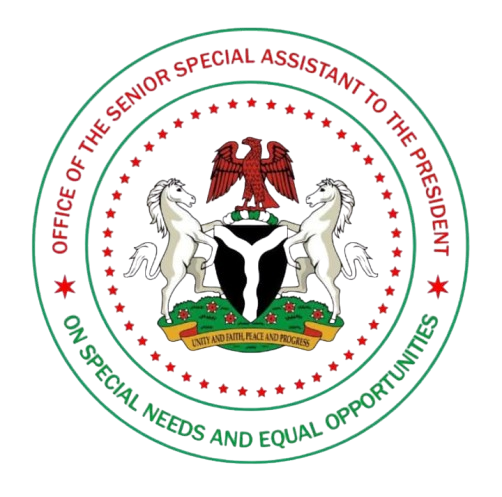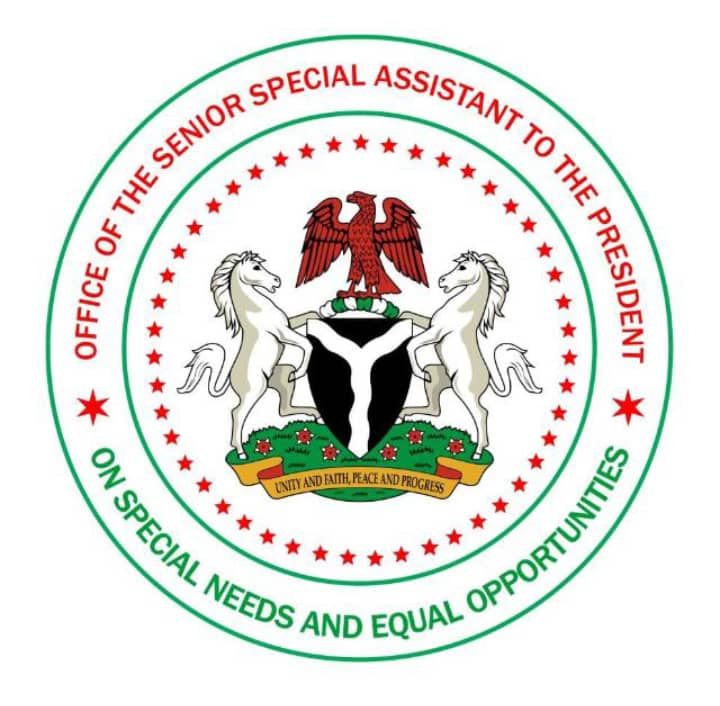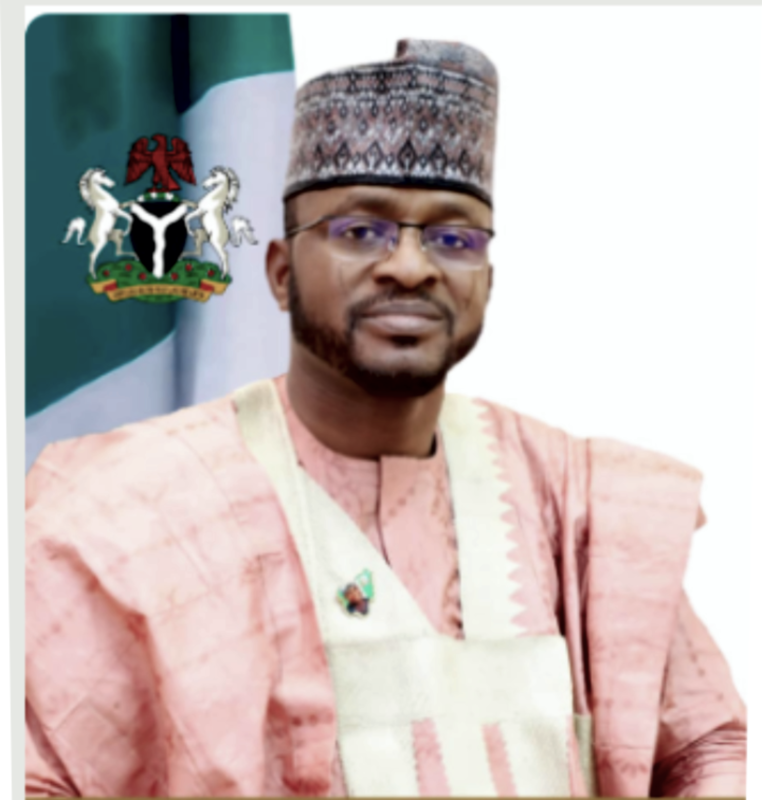By Lanre Oloyede
The Senior Special Assistant to the President on Special Needs and Equal Opportunities, Hon. Mohammed Abba Isa, has emphasized the need to engage with the National Assembly to ensure that research findings and recommendations on the political inclusion of Persons With Disabilities (PWDs) are fully integrated into Nigeria’s electoral laws for effective enforcement.
Hon. Abba Isa made this call at the Public Presentation of Research Reports on Promoting Accessibility and Enforcement of the Disability Act in Nigeria’s Political Space, organized by the Westminster Foundation for Democracy (WFD) and CARE Foundation.

With the theme “Promoting Inclusive Democracy: A Call for Active Participation of Persons With Disabilities in Nigeria’s Political Space,” the event featured the public presentation of three key reports:
1 The Minimum Standards for Inclusion of Persons with Disabilities (PWDs) in Political Parties Report
2. The PAGE Analysis Report
3. The Accessibility Audit Research Report

Represented by his Director of Media and Communications, Lanre Oloyede, Hon. Abba Isa described the research reports as timely and crucial for strengthening democracy and enhancing political participation for millions of Nigerians with disabilities.
Moving Beyond Research to Policy Implementation
Hon. Abba Isa stressed that the work does not end with research but must be followed by concrete actions. He underscored the need to translate the research findings into actionable policies and legal frameworks, emphasizing that without legal backing, inclusion remains a wish rather than a reality.

“I must commend WFD and CARE Foundation for their dedication, expertise, and passion for disability inclusion. Their painstaking validation process ensures that this report meets international standards and will serve as a reference point for other African nations striving for inclusive political participation.”
Drawing from his political experience, Hon. Abba Isa acknowledged the significant challenges PWDs face before, during, and after elections, including accessibility barriers, discriminatory attitudes, financial constraints, and security concerns. He expressed optimism that the research findings have comprehensively addressed these challenges and provided practical proposals to eliminate barriers and enhance political inclusion.

He further reiterated that the President Bola Ahmed Tinubu-led administration is firmly committed to inclusive governance, stating that the Renewed Hope Agenda is not just a slogan but a guiding principle for equal political participation.
“Under this administration, we are determined to move beyond rhetoric to concrete actions that will secure the rightful place of PWDs in the political space.”

Key Insights from the Research Reports
In his opening remarks, Mr. Adebowale Olorunmola, Country Director of WFD, represented by the Programme Manager, Mrs. OluShola Folayan, emphasized that the research reports mark a crucial step in strengthening the Discrimination Against Persons with Disabilities (Prohibition) Act, 2018, particularly in Nigeria’s political landscape.
Despite the passage of this landmark Act, he noted that its implementation remains slow, inconsistent, and ineffective. Political parties, which are central to democracy, continue to fall short in creating inclusive environments for PWDs.

Findings from the PAGE Analysis Report revealed that while some states have domesticated and gazetted the Disability Act, others remain at various legislative stages, with some yet to take any steps at all. The absence of functional Disability Commissions in many states further complicates enforcement.
The Accessibility Audit Research Report highlighted the exclusion of PWDs from political spaces, revealing alarming statistics:
Only 22.4% of surveyed political party offices have accessible ramps.
Just 10.2% feature tactile signage.
55.1% of political party websites and social media platforms are inaccessible to PWDs.
80% of PWD candidates reported facing discrimination during electoral campaigns.
These findings underscore the systemic barriers preventing PWDs from fully participating in politics, a situation deemed unacceptable in a democratic society.

IPAC’s Commitment to Political Inclusion
Delivering a goodwill message, Mr. Yusuf M. Dantalle, National Chairman of the Inter-Party Advisory Council (IPAC), reaffirmed IPAC’s commitment to ensuring that all citizens, including PWDs, can meaningfully participate in the political process.
> “True political inclusivity requires not just accessible spaces but also the removal of systemic barriers that have long hindered PWDs from assuming leadership roles.”
He highlighted some of IPAC’s recent initiatives, including the creation of three Directorates dedicated to Women, Youth, and Persons with Disabilities within the first 100 days of the current leadership. Additionally, IPAC has been actively engaging stakeholders on the reservation of special seats for women in the National Assembly and working towards the passage of the bill currently before the parliament.

Mr. Dantalle further stated that IPAC’s ultimate goal is to make nomination forms free for PWDs and explore financial support mechanisms to assist those with the requisite social capital to contest elections. He assured continued collaboration with relevant stakeholders to ensure PWDs are not just represented in elections but actively included in governance at all levels.
“We must foster an environment where PWDs can contribute their perspectives, skills, and expertise to the growth and development of our nation.”

The event underscored the urgent need for political reforms that guarantee equal participation for all Nigerians, regardless of ability or disability. Stakeholders emphasized that without integrating research findings into Nigeria’s electoral laws, PWDs will continue to face marginalization and exclusion from the political process.
As the conversation around inclusive democracy gains momentum, it remains imperative for the government, political parties, and civil society organizations to collaborate in ensuring that PWDs have a fair and equitable opportunity to shape Nigeria’s democratic future.


